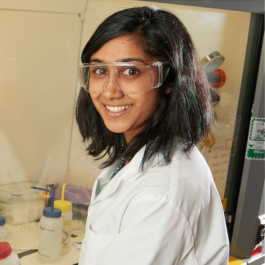-
Workshop: Artificial Intelligence for Materials Science (AIMS)
-
The Materials Genome Initiative (MGI) promises to expedite materials discovery through high-through computation and experiment. Application of Artificial-intelligence (AI) tools such as machine-learning, deep-learning and various optimization techniques are critical to achieving such a goal. Some of the key areas of applications in employing AI techniques to materials are: developing well-curated and diverse datasets, choosing effective representation for materials, inverse materials design, integrating autonomous experiments and theory, and choosing appropriate algorithm/work-flow. The idea of including physics-based models in the AI framework is also fascinating. Lastly, uncertainty quantification in AI based predictions for material properties and issues related to building infrastructure for disseminating AI knowledge are of immense importance for making AI based investigation of materials successful. This workshop is intended to cover all the above-mentioned challenges. To make the workshop as effective as possible we plan to mainly focus on inorganic solid-state materials, but are not limited by it.
AIMS2024, July 17-18, 2024 (In-person)
AIMS2023, July 25-27, 2023 (Virtual)
AIMS2022, July 12-14, 2022 (Virtual)
AIMS2019, August 1-2, 2019 (In-person)
AIMS2018, August 7-8,2018 (In-person)
Commitee members

perm_identity Material Scientist
business NIST
location_on Gaithersburg, Maryland

perm_identity Material Scientist
business NIST
location_on Gaithersburg, Maryland

perm_identity Material Scientist
business NIST
location_on Gaithersburg, Maryland

perm_identity Material Scientist
business NIST
location_on Gaithersburg, Maryland

perm_identity Material Scientist
business NIST
location_on Gaithersburg, Maryland

perm_identity Material Scientist
business NIST
location_on Gaithersburg, Maryland


